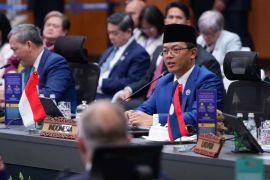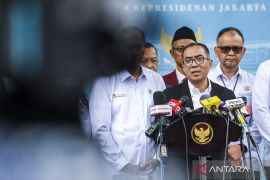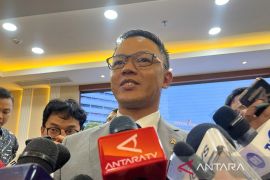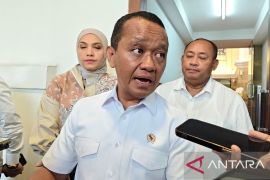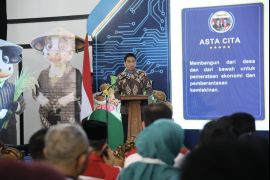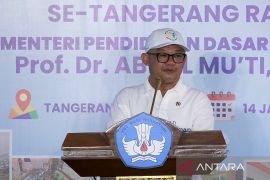"We have already made the regulation, familiarizing it and even campaigning for it. However, it will depend on the businessmen. If they will not do it, we will find a way out," Darmin said.Jakarta (ANTARA News) - There should be a way to ensure funds repatriation under the current tax amnesty program for development purposes, Chief Economics Minister Darmin Nasution declared here, Wednesday.
"We have already made the regulation, familiarizing it and even campaigning for it. However, it will depend on the businessmen. If they will not do it, we will find a way out," he said.
The funds that have been repatriated to the country have not reached the estimated target, while based on the initial plan, around Rp one thousand trillion was expected to be repatriated, Darmin admitted.
The government will not force asset owners abroad to repatriate their funds, whereas, what the government can do now is merely appeal and improve its data base on asset ownership or tax payers, the coordinating minister for economic affairs revealed.
"We will not act against them. We will build the data base to locate (the assets). Now, we are still coordinating with the various government agencies, outside the tax office, to obtain data," he mentioned.
Until the end of the second period of the tax amnesty program on December 31, 2016, the Directorate of Tax recorded a total of Rp141 trillion that had been repatriated into the country, while the assets declared reached Rp4,296 trillion.
On the possibility that the repatriation of funds did not meet the estimated target because the participants did not meet their initial commitment, the Directorate of Tax will review the reports on repatriation during the first and second periods, he said.
Finance minister Mulyani Indrawati insisted the repatriation of funds was not the only option for the participants of the tax amnesty program.
"If they feel that the cost of repatriating funds home is high, then the funds will remain abroad," she stated.
Under the tax amnesty law, repatriation is not a main obligation, as tax payers have also been given the option to declare their assets abroad and pay a tariff that is not much higher than the cost of repatriating them, she explained.
So, it will not be surprising if some participants in the tax amnesty program prefer to declare the assets and pay the tariff if it is reasonable and a simpler process, compared to repatriation.
"The law has since the beginning given options and set tariffs that are not significantly higher. So, it provides asset owners options," she said.
The Directorate of Tax has confirmed that tariffs for repatriation and declaration for the third period from January 1, 2017 to March 31, are five percent and 10 percent, respectively. (*)
Editor: Heru Purwanto
Copyright © ANTARA 2017

